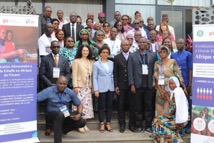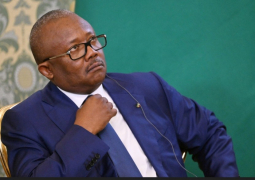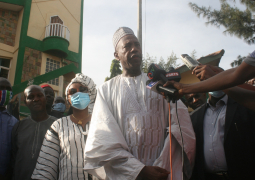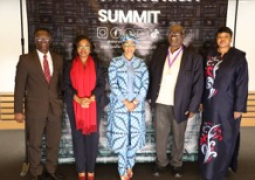
The workshop brought together journalists and communicators from 17 African countries.
Held at the BNB SPA Hotel in Abidjan, the workshop dilated on the theme: "Multi-sectorality and Intersectoral Dialogue in the Context of Agriculture, Addressing Micronutrient Deficiencies in Africa."
The forum was organised in collaboration with the Rescue Services Catholic/Catholic Relief Services (CRS), the regional coordination of the civil society of the SUN Movement for West and Central Africa and the African Journalists and Communicators Initiative for Nutrition (IJ-CAN).
Among the 17 countries at the edifying workshop, The Gambia was represented by two senior journalists.
Participants dilated on various presentations including malnutrition basics, micronutrient deficiencies, multisectorality, cross-sectoral dialogue, experience sharing sessions, and validation of messages to be published on social networks.
The presentations also highlighted fortification process of three food vehicles - oil, flour and salt, which participants dissected through group work or tasks and determined a road map for a better involvement of journalists and communicators in the fight against malnutrition and the the strategic steps to be taken to realise a positive result.
Speaking at the opening ceremony, Dr Patricia N’Goran, adviser to the Vice President of Cote d’Ivoire, and SUN CI focal point, stated that malnutrition, in all its forms (overnutrition, undernutrition and micronutrient deficiencies), remains one of the biggest challenges in the African continent.
Women and children are the main victims of micronutrient deficiencies, she said, adding that in West and Central Africa, nearly half of children under the age of five suffer from vitamin A deficiency, 60% of them are anaemic, mainly due to iron deficiency, and 25% are lacking in zinc.
“Micronutrient deficiencies have devastating consequences for children's cognitive development, their growth and ultimately, their ability to participate fully to the development of their nations,” she said.
She added that food insecurity, exacerbated by economic crises, and the COVID-19 pandemic, has also increased the number of severely food insecure to 35.3 million in Africa.
Judith Kabore, country action specialist at the SUN movement secretariat in Dakar, said the SUN Movement is committed to supporting efforts of stakeholders.
This support, she enunciated, include the media, adding that their approach also focuses on both individual countries and the region, to ensure the fight against malnutrition is undertaken via collaboration, innovation and inclusion.
“Together, we can ensure that the fight against the shortcomings of micronutrients is not just a priority, but a shared responsibility,” she said. “Let's work hand in hand, across sectors and borders, to build a future where no one is left behind due to a lack of essential nutrients.”
Mariana Stirbu, deputy representative of UNICEF in Cote d’Ivoire, who spoke on behalf of the Regional Nutrition Advisor for UNICEF regional office for West and Central Africa, said: “Malnutrition is a major subject that must be given our attention collectively. Malnutrition in all its forms is a violation of the rights of children.”





